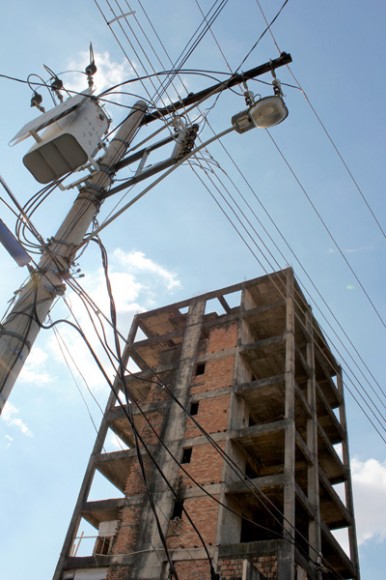OBJECTION hearings are part and parcel of the development process. If a new building or development is planned, it is only natural to expect that those living in the vicinity should have their views heard. But some would argue that this right is only limited to those within a very close proximity to the project.
While residents may get incensed about such trivialities, the tiny details are the playground of lawyers. And residents who do not pay attention to such tiny details can sometimes find themselves barred from participating in an objection hearing.
So, this exciting episode of Ampersand shall look at these tiny details and see how residents can retain their right to speak up.
Neighbour’s right
First, let us look at what some developers have said about who it is exactly that has a right to voice an objection.
Sime Darby Property (Sime) has been attempting to develop part of Subang Ria Park’s 72 acres as residential and commercial property. The park is located off one of the entrances to Subang Jaya from the Federal Highway, close to a major traffic junction. The project, now reportedly cancelled by the state government, is also close to large residential estates.

Sime’s lawyer, however, said they only needed to consult two people as part of the development process. Their lawyer reportedly said: “Under the [Town and Country Planning] Act, my client informed the only two people who are qualified to object [to] their plans to subdivide and develop the land, and the two lawful objectors did not object to the plan.”
When residents questioned the plot ratio of a proposed project in Section 52, Petaling Jaya, adjacent to Armada Hotel, developer Mammoth Empire Holding Sdn Bhd questioned their right to raise the issue. “If you want to bring up the Town and Country Planning Act, then you are not in a position to comment about the development because you do not stay within 200m of the project,” a company representative reportedly said.
Both developers were most likely referring to Section 21(6) of the Town and Country Planning Act, which reads as follows:
“If the proposed development is located in an area in respect of which no local plan exists for the time being, then, upon receipt of an application for planning permission … the local authority shall, by notice in writing served on them, inform the owners of the neighbouring lands of their right to object to the application and to state their grounds of objection within [21] days of the date of service of the notice.”
Note the italicised passage where it defines the persons that have the right to object. Further down the same section, the definition of “neighbouring lands” is land parcels located 20m away from the proposed project’s perimeter; or if the site is located within a cul-de-sac (dead-end area), neighbouring lands will be considered to be within 200m.
So, based on this section, it wouldn’t be wrong for developers to say that unless you own a property within 20m or 200m – depending on the circumstances – your objection cannot legally be recognised. This is even if the government allows you to voice your opinion.

Indeed, I recall a case where a development project was approved by the local council without calling for an objection hearing. The reason given was that the nearest landowners were across a road that was slightly wider than 20m.
Development plans
Instead of arguing with the lawyers on that particular point, let us look at the Town and Country Planning Act in totality, which also provides for the creation of development policies via the National Physical Plan and the National Urbanisation Policy. I had detailed these two documents in a previous column.
These documents are considered statutory documents and contain the policies for development that the government must adhere to when approving a development project.
Some of these policies are: There shall be two hectares of open space for every 1,000 persons; and state land within urban limits shall be reserved for public use.
So what do these policies have to do with a person’s right to voice his or her objection?
Body corporate
Local councils are a body corporate for all ratepayers, as per the Local Government Act, making all ratepayers stakeholders of the council.
Should the local council approve a development without ensuring the development policies are adhered to, it would have violated the Town and Country Planning Act, which states that a body corporate can be held liable.
Damages resulting from such liability could possibly run into the millions, as development projects would cost that much. However, this sum would not be paid by the councillors and officers that made the decision unless it can be proven they were purposefully negligent.
As such, a ratepayer who finds a proposed development that does not comply with any of the policies contained within the statutory documents mentioned has every right to voice an objection and insist the policies are adhered to. This can be at an official objection hearing event held by the government or through other means like the mass media, regardless of whether the resident is an “owner of neighbouring lands” or not.
In this instance, the ratepayer is protecting his or her interest as a member of the body corporate. Of course, if the council continues to ignore what the ratepayers are telling them, sometimes the only other alternative would be legal recourse. The Tanjung Bunga Residents Association in Penang is one example of ratepayers suing the local council for not listening to their complaints of breaches to the Town and Country Planning Act. ![]()
MBPJ councillor KW Mak is a Petaling Jaya ratepayer.

